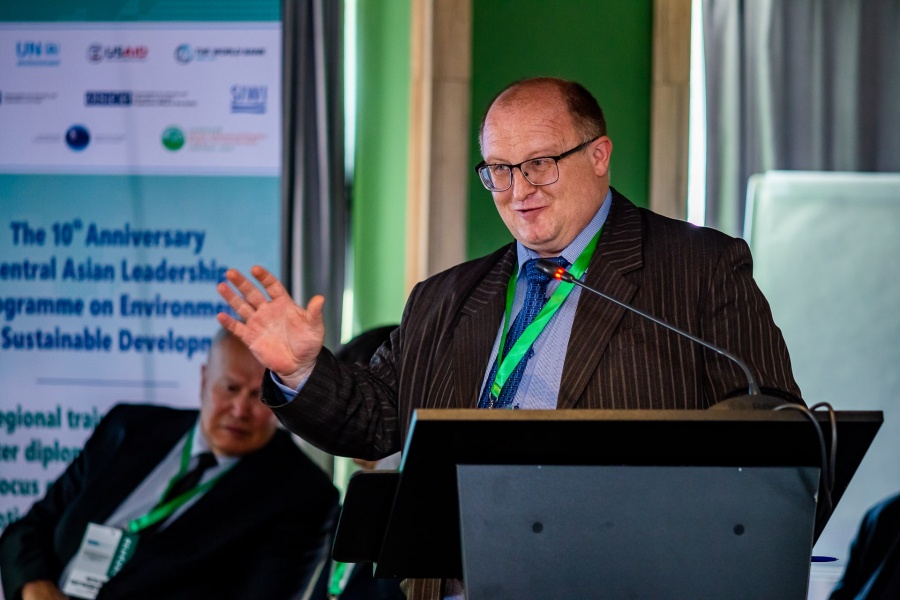riverbp
Network of river basins / Meetings
There is no development without people
 02.09.2020
02.09.2020
#SmartWatersGrandFinale
#SmartWaters_BehindtheScenes
#SmartWaters_News
There is no development without people
Interview with Alexandr Nikolayenko, Regional Advisor, Deutsche Gesellschaft für Internationale Zusammenarbeit (GIZ)
Water allocation creates many problems between countries, explains Alexandr Nikolayenko. Alexandr is Regional Advisor for Transboundary Water Management for GIZ, and has over 20 years’ experience in the Central Asia water sector.
For one, he says, many different people and parties are involved in the decisions, and it is often based on different situations in various water departments, at borders, the current economic state, and foreign affairs, to name a few. Alexandr explains that though different bodies and stakeholders can reach decisions on water, the impact often does not go beyond their jurisdiction.
Instead, we need to involve all these people in the same decision-making process, he says. “This is absolutely necessary for intergovernmental decisions, because for one situation, we can have vastly different viewpoints at opposite sides of the border.” A solution is a basin planning methodology for Central Asia, and Alexandr has been involved in the development of one for a near-decade. This work came to fruition in the Smart Waters project.
The project has many achievements to be proud of but, for Alexandr, the dissemination of this methodology in Central Asia and Afghanistan is perhaps what stands out the most. Not having this has been one of the biggest problems at ministry and inter-ministry level, and it is a big result for water resources management in the region, he says.
A second aspect is the creation of Small Basin Councils. “The value of the SBCs lies in the involvement of different people in water allocation decisions. Issues can now be discussed around the same table.”
The establishment of the first basin councils in Turkmenistan and Uzbekistan in particular stand out, as is the support that helped create the necessary institutional and legal backing for this in Turkmenistan and Afghanistan.
Another notable achievement is the creation of Small Basin Councils across borders. “I believe that good relations between countries will help solve water allocation problems, and in this context SBCs in transboundary basins are big accomplishments.”
Still, he says, the project’s legacy will be in the training provided to water management specialists on various levels. All training was always based on the same methodology for establishing Small Basin Councils and basin planning.
“Life happens, and situations between people can change but for real sustainability we need instruments. Now, we have this. Based on the knowledge conveyed to people through the training, together with the special methodologies that were created, we can develop a sustainable way forward.”
“Ten years ago, it was difficult to start such discussions, but now, after several years, it’s a different situation. Partners really want to use this system to develop water management plans.”
One of the main messages that Alexandr would like to leave participants with is that you should never be afraid to create new things. “It will provide you with opportunities to develop.” More than the work done for basins, all the work done for the Smart Waters project was really to provide people with new opportunities, he says. All that the project team and partners actually did was to help people access these opportunities. “For all development, the first step is people.” #USAIDCentralAsia
Smart Waters project is implemented by CAREC with the financial support of the United States Agency for International Development USAID during the period 2015-2020. Overall objective of the project is to enhance regional cooperation on shared water resources. Specifically, Smart Waters addresses the knowledge dis-lock in the region in water sector, builds working relations among water managers and specialists, and demonstrates the potential of the basin management approach and cooperation with the academia.


